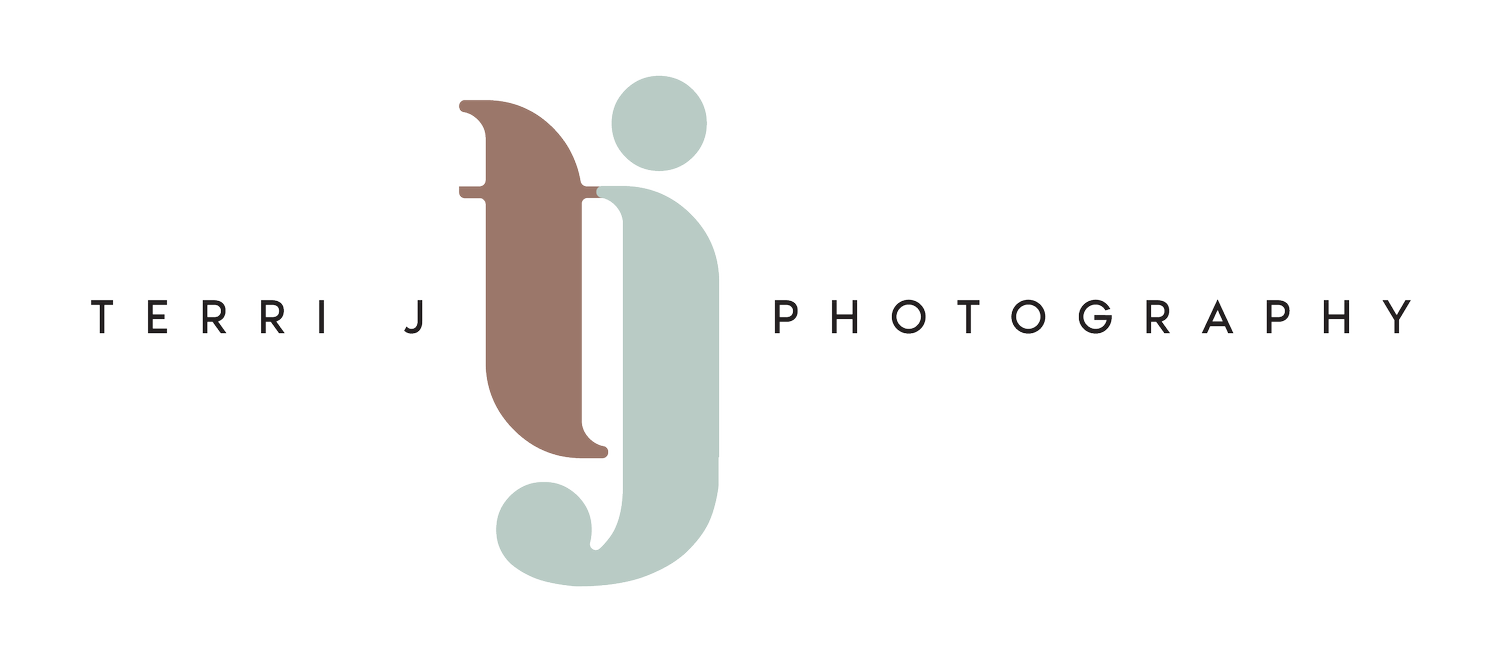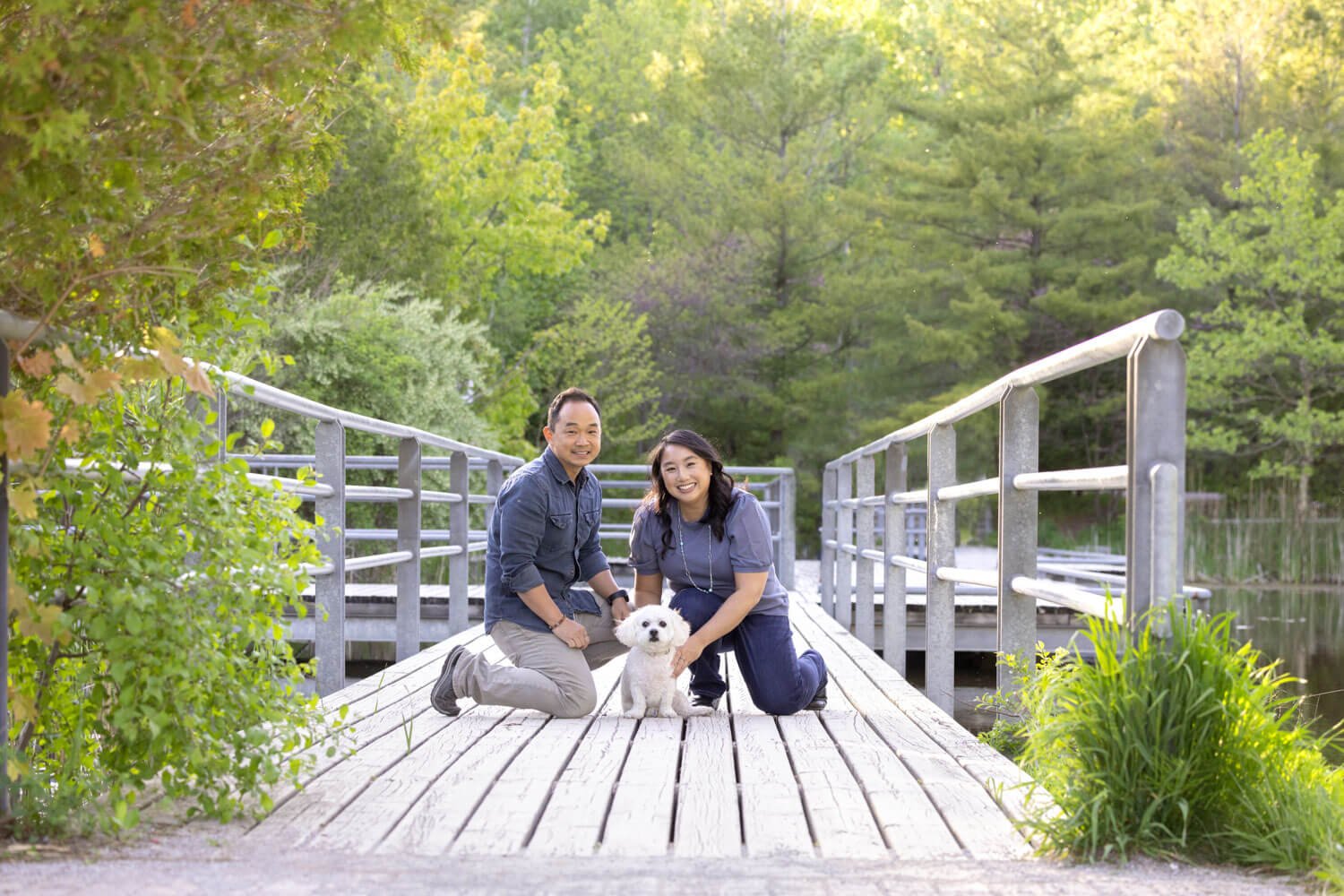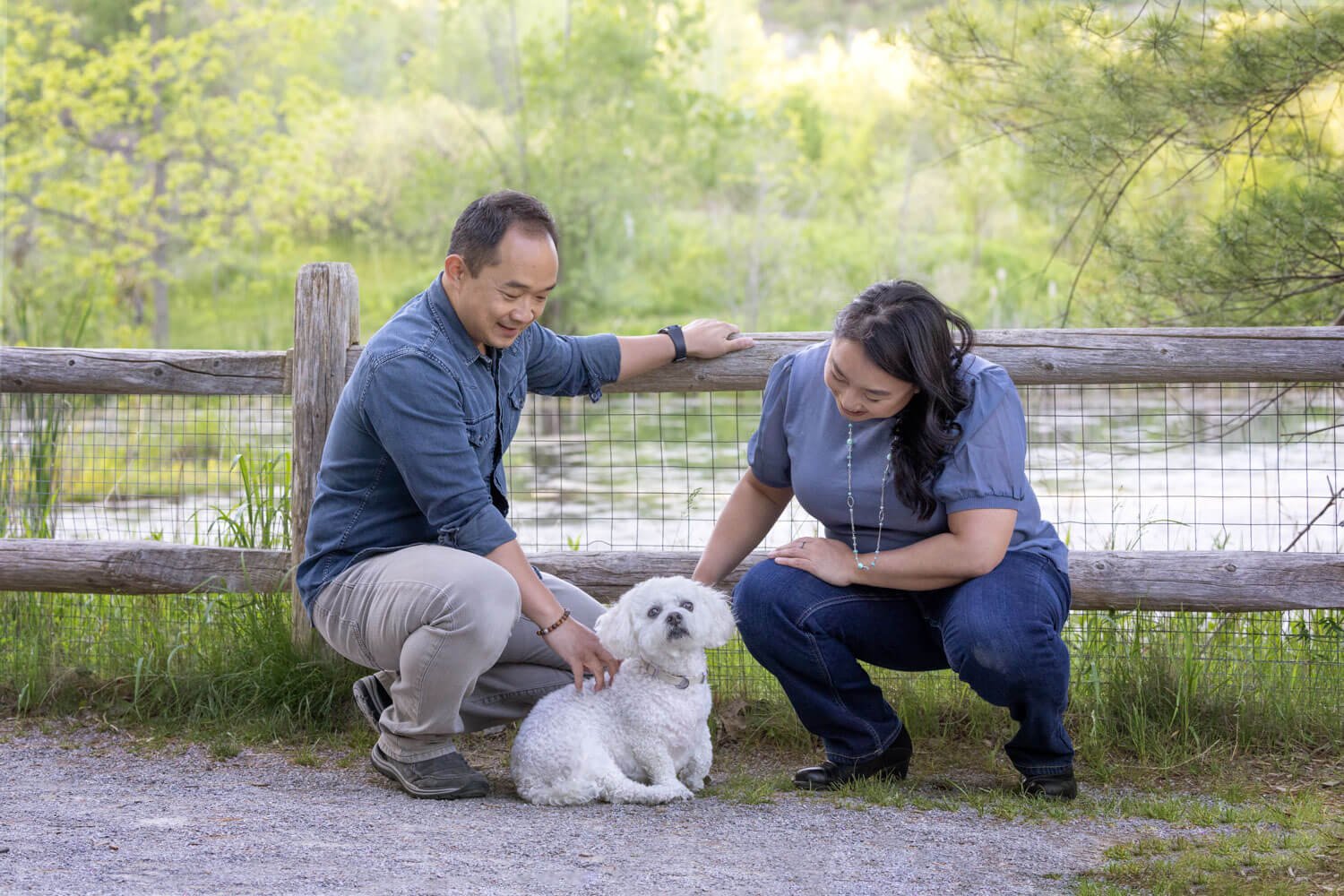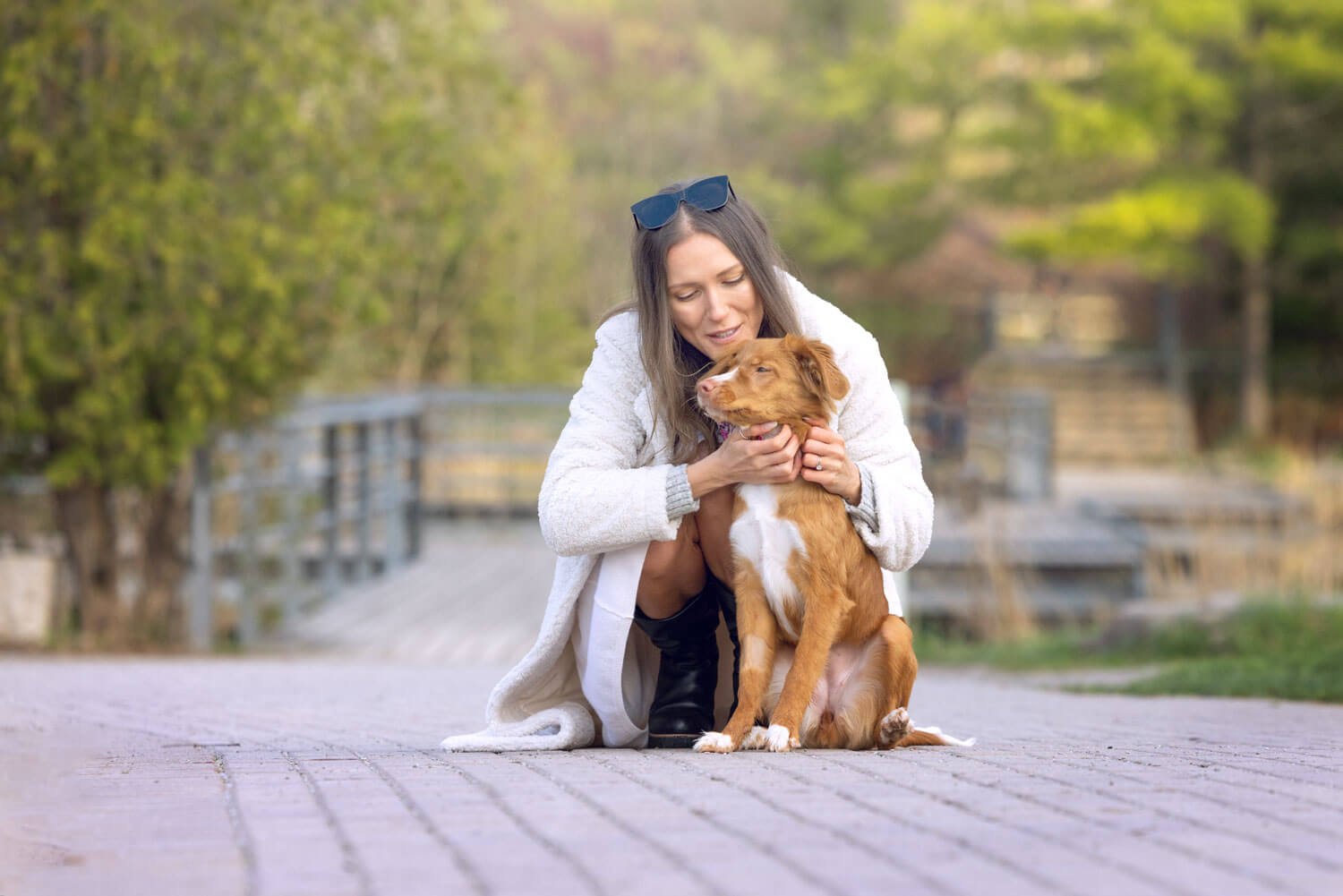Pet Photography Tips - Leading Lines
/When it comes to pet photography, capturing the perfect shot that truly showcases the unique personality and charm of our four-legged friends is an art form.
I love to use my knowledge as a professional pet photographer in Toronto to help you improve your own dog photography. And so I’ve written a number of posts providing dog photography tips.
You can read about
One powerful compositional technique that can elevate your pet photos to new heights is the effective use of leading lines. These lines not only add visual interest but also guide the viewer's eye through the image, drawing attention to your adorable subject.
So, let's explore the world of leading lines and how they can enhance your pet photography!
What are Leading Lines?
Leading lines are elements in your photograph that draw the eye towards your subject, in this case your pet. These can be man made structures such as roads, fences, walls, bridges and benches.
Sometimes you may find leading lines in nature - flowers, rivers, shore lines - look for them and use them to your advantage as great ways of improving your pet photography.
Look for these elements when you are out with your pet taking photos - you’ll find them everywhere.
Leading lines can be in different directions.
Think of horizontal lines, such as a shoreline or a wooden fence. Horizontal leading lines can enhance the perception of depth in an image. By guiding the viewer's eye along the line, they create a sense of distance and space. This can make the photo appear more expansive and add visual interest by drawing the viewer deeper into the scene.
Vertical lines, like tall grass or tree trunks can direct attention from the foreground to the background or from one part of the frame to another. They help create a visual flow and lead the viewer to focus on the dog or the dog and his family.
Diagonal lines can introduce a sense of movement and action into the frame.
Utilizing Leading Lines in Pet Photography
Perspective: Experiment with different angles and perspectives to find interesting lines that can lead the viewer's gaze towards your pet. Get down to their eye level or try shooting from above to incorporate natural leading lines into the frame.
Natural Elements: Seek out locations that offer built-in leading lines. Long, winding paths in parks or forest trails can create a strong sense of depth, while the curves of a riverbank can add a graceful flow to your image.
Man-Made Structures: Utilize man-made structures like bridges, fences, or staircases to frame your pet within the lines. These elements guide the viewer's eye towards the pet and also create a meaningful context or story to the photo.
Patterns and Textures: Look for patterns or textures in the environment that can create implied leading lines. Whether it's a brick wall, a cobblestone path, or a field of flowers, these elements can add visual interest while guiding the viewer's eyes towards your pet.
Leading lines , when used effectively, they can transform a simple pet portrait into a captivating visual story.
So, grab your camera, head outdoors, and let the journey of capturing stunning pet photos with leading lines begin! Happy clicking!
Using man made structures is a popular form of leading lines. Here’s Encore with his people on a bridge illustrating thee use of vertical leading lines
In the photo of Rumpy below, the plants on either side of him are vertical leading lines drawing your eyes directly to the dog. Sometimes these lines are subtle!
In Toby’s photo below flowers are the leading lines. The flowers all point upwards towards little Toby.
Here’s Encore again this time with the use of a horizontal leading line.
And here’s Laika and her Mom showing how patterns can be leading lines too. The patterns of the pathway form lines pointing towards them and drawing our eyes in that direction.
Now you have an idea of what to look for, have fun with your camera and your pets and see what leading lines you can find in your neighbourhood!
If you would like to learn more about leading lines in photography, here is a great in depth article.
For more great articles and tips to improve your pet photography you may wish to read:
Using negative space to add interest to your pet photography
If you live in and around the Greater Toronto area and are interested in professional dog photography session, please feel free to contact me. I would love to hear more about your furry friends and discuss a photo session with you!









